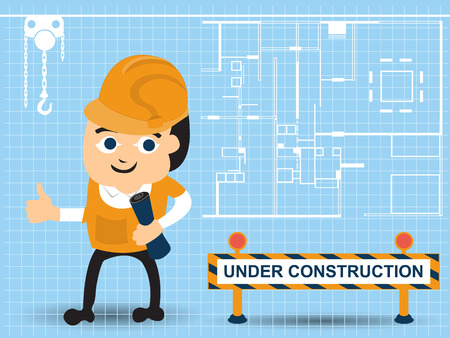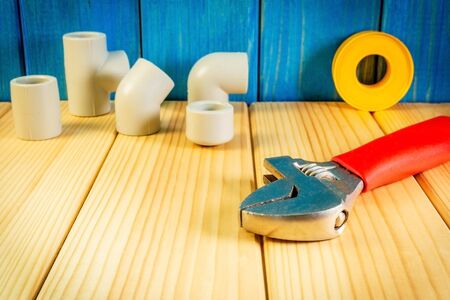Introduction to UK Plumbing Regulations
The United Kingdom boasts a robust set of plumbing regulations designed to ensure the safety, efficiency, and environmental responsibility of all plumbing works. Whether you are a homeowner looking to tackle minor repairs or a professional tradesperson managing comprehensive maintenance projects, understanding the legal framework that governs plumbing in the UK is essential. Adhering to these standards is not only crucial for safeguarding property and personal health but also for remaining compliant with national legislation. The regulations set forth by authorities such as the Water Supply (Water Fittings) Regulations 1999 and Building Regulations Part G provide a clear structure for what is permissible and how work should be carried out. Ignoring these rules can result in costly penalties, voided insurance policies, or even criminal prosecution. To help clarify the landscape, the table below summarises key regulatory bodies and their areas of oversight:
| Regulatory Body | Key Responsibilities |
|---|---|
| Water Regulations Advisory Scheme (WRAS) | Ensures materials and fittings comply with water supply requirements |
| Local Building Control | Oversees compliance with building regulations during renovations or new installations |
| Environment Agency | Monitors environmental impacts, particularly waste water management |
By familiarising yourself with these governing frameworks and understanding your responsibilities under UK law, you lay the foundation for any repair or maintenance work to proceed smoothly, safely, and legally.
Key Legislation and Standards
When it comes to plumbing repairs and maintenance in the UK, adhering to the correct legislation and standards is not just best practice—it’s a legal requirement. Understanding the primary acts and regulations is essential for both homeowners and professionals to ensure safety, efficiency, and compliance.
Primary Acts Governing Plumbing Work
The backbone of UK plumbing regulation is the Water Supply (Water Fittings) Regulations 1999. These regulations are designed to prevent waste, misuse, undue consumption, contamination, and erroneous measurement of water supplied by public water undertakers. They apply to all plumbing systems, water fittings, and appliances connected to the public water supply across England and Wales.
| Legislation/Standard | Scope | Applicability |
|---|---|---|
| Water Supply (Water Fittings) Regulations 1999 | Design, installation, operation, and maintenance of water fittings | England & Wales |
| Building Regulations Part G (Sanitation, hot water safety & water efficiency) | Hot & cold water supply, sanitation, drainage | England & Wales |
| British Standard BS 6700 / BS EN 806 | Specification for design, installation, testing and maintenance of services supplying water for domestic use within buildings | UK-wide (BS EN 806 is EU-harmonised) |
| Scottish Water Byelaws 2004 | Similar requirements as above but specific to Scotland | Scotland only |
| The Water Byelaws 2000 (Northern Ireland) | Control of plumbing systems and water fittings in Northern Ireland | Northern Ireland only |
The Role of British Standards
British Standards such as BS 6700 (now largely replaced by BS EN 806) provide detailed technical guidance on the specification, installation, commissioning, and maintenance of plumbing systems. While compliance with these standards isn’t always mandatory by law, they are widely referenced in contracts and by insurers as benchmarks for good practice.
Local Variations and Certification Schemes
It’s important to note that while overarching national legislation exists, local water authorities may have their own additional requirements or approval schemes for plumbers—such as membership in WaterSafe or CIPHE. Always check with your local authority before commencing significant repair or maintenance works to ensure all statutory obligations are met.

3. Responsibilities of Homeowners and Landlords
In the UK, maintaining plumbing systems is not just about comfort—its a legal obligation. The responsibilities differ significantly between homeowners and landlords, each bound by specific regulations to ensure properties remain safe, sanitary, and compliant. Understanding these duties is essential for avoiding penalties and costly repairs.
Legal Obligations
Both homeowners and landlords must adhere to the Water Supply (Water Fittings) Regulations 1999 and other relevant British Standards. These laws govern the installation, maintenance, and repair of all plumbing fixtures to protect water quality and prevent leaks or contamination. Local authorities may enforce stricter standards depending on the property type and location.
Key Responsibilities Compared
| Responsibility | Homeowners | Landlords |
|---|---|---|
| Routine Maintenance | Required for all plumbing within the property boundary | Obligatory for all let properties, including communal areas in flats |
| Emergency Repairs | Must be addressed promptly to prevent further damage | Legally required to act swiftly; delays can result in tenant compensation claims |
| Annual Inspections | Recommended but not mandatory | Often mandatory under tenancy agreements and insurance policies |
| Compliance Certification | Advisable for major works (e.g., extensions) | Required before new tenancies or after major upgrades |
The Importance of Documentation
Both parties should keep clear records of all plumbing repairs, inspections, and upgrades. For landlords, this documentation is often requested during property licensing applications or when resolving disputes with tenants. Homeowners benefit from documented proof when selling their home, as it demonstrates compliance with UK standards and assures prospective buyers of the system’s integrity.
4. Approved Installers and Qualified Tradespeople
When dealing with plumbing repairs and maintenance in the UK, one of the most important considerations is who carries out the work. Employing certified plumbers is not just a matter of ensuring quality—it’s about meeting legal obligations and maintaining safety standards. Under UK regulations, an ‘approved installer’ refers to a tradesperson or company that has been officially recognised by a water authority or an approved industry body, such as WaterSafe or the Chartered Institute of Plumbing and Heating Engineering (CIPHE). This status demonstrates that the individual or business has proven competence, up-to-date knowledge of relevant regulations, and a commitment to best practice.
The Value of Certified Plumbers
Certified plumbers are required to adhere to rigorous standards set out by regulatory bodies. They are well-versed in the Water Supply (Water Fittings) Regulations 1999 and Building Regulations Part G, ensuring all installations and repairs comply with safety and efficiency guidelines. Using an approved installer provides peace of mind for homeowners, landlords, and businesses alike, as it reduces the risk of non-compliance penalties and future costly repairs.
What Makes Someone an ‘Approved Installer’?
| Criteria | Description |
|---|---|
| Accreditation | Must be registered with a recognised scheme (e.g., WaterSafe) |
| Training | Completed industry-recognised qualifications and ongoing professional development |
| Insurance | Holds appropriate public liability insurance |
| Compliance | Demonstrates up-to-date knowledge of UK plumbing regulations |
Benefits of Hiring Approved Installers
- Work is guaranteed to meet British Standards
- Ensures compliance with local water authority requirements
- Access to expert advice on system upgrades and maintenance
- Reduces risk of leaks, contamination, or inefficient installations
Ultimately, opting for an approved installer is more than a tick-box exercise—it reflects a dedication to safety, legality, and long-term value in your property. Whether you’re planning routine maintenance or tackling emergency repairs, ensuring your tradesperson is certified means your project remains stylishly functional and regulation-ready.
5. Common Repair Scenarios and Regulatory Implications
In the UK, everyday plumbing repairs often seem straightforward but are underscored by a framework of regulations designed to ensure safety, efficiency, and environmental protection. Homeowners and landlords must be aware of how these rules apply to common repair scenarios, as non-compliance can lead to fines or even invalidate insurance policies. Below, we explore several typical situations and the regulatory implications associated with each.
Leaking Taps and Pipework
Replacing washers or repairing leaks in taps and visible pipework is generally considered minor maintenance. However, the Water Supply (Water Fittings) Regulations 1999 require that any repair must not introduce contamination risks or use substandard fittings. Therefore, only approved parts should be used.
Replacing Toilets and Cisterns
When upgrading or repairing toilets, it’s essential to ensure that new cisterns comply with UK water-saving standards—typically requiring dual flush mechanisms to reduce water usage. Installations must also include appropriate backflow prevention devices.
Repair Scenario Table
| Scenario | Regulatory Requirement | Who Can Perform? |
|---|---|---|
| Fixing a dripping tap | Use WRAS-approved components | Competent DIYer or professional |
| Replacing a toilet cistern | Dual flush & backflow prevention | Professional recommended |
| Unblocking drains | No contamination of mains supply allowed | Competent DIYer or professional |
| Repairing internal stopcock | No unauthorised alterations to mains connection | Professional preferred |
Pipes and Central Heating Repairs
If your repair involves altering the water supply pipework or working on sealed heating systems, Building Regulations (Part G) may come into play—especially where hot water systems are concerned. Only qualified engineers should handle pressurised systems to prevent scalding risks and property damage.
Drainage Issues and Maintenance
Clearing blocked drains within your property boundary is your responsibility, but any work that impacts shared drainage requires compliance with local authority guidelines. In conservation areas or listed buildings, additional permissions may be needed before repairs commence.
Summary: Why Compliance Matters
Adhering to UK plumbing regulations not only ensures legal compliance but also protects householders from health hazards and potential financial losses. Whether handling a simple leak or a more complex system upgrade, always check current guidelines and seek professional advice when in doubt.
6. Navigating Local Authority and Water Supplier Requirements
When undertaking plumbing repairs or maintenance in the UK, understanding when to notify or seek approval from your local authority or water supplier is essential for compliance and safety. Not all plumbing works require formal notification, but certain alterations—especially those that may impact public health or water supply integrity—are subject to specific rules.
When Notification is Required
Generally, notification or approval is necessary if your project involves:
- Installing new water fittings or systems
- Altering existing pipework connected to the mains supply
- Fitting unapproved appliances (e.g., bidets with ascending spray, non-compliant taps)
- Working on fire-fighting systems or garden irrigation connected to mains water
- Making changes in high-risk premises (schools, care homes, hospitals)
Quick Reference Table: When to Notify
| Type of Work | Notify Local Council? | Notify Water Supplier? |
|---|---|---|
| Replacing like-for-like tap/fittings | No | No |
| Installing new bathroom suite | No (unless structural change) | Yes (if altering pipework) |
| Laying new mains pipework | No | Yes |
| Connecting rainwater harvesting system | No | Yes |
| Greywater recycling installation | Yes (Building Regs Approval) | Yes |
| Works in listed buildings/conservation areas | Yes (Planning Permission) | Depends on scope |
The Role of Water Regulations Approval Schemes (WRAS)
If you are using WRAS-approved products and a qualified plumber, many simple jobs may not need direct notification. However, for complex or high-risk installations, informing your water supplier ensures that your work meets the Water Supply (Water Fittings) Regulations 1999, protecting both your property and the wider community.
Top Tip for Homeowners and Landlords:
If unsure whether your planned work requires approval, always check with your local authority’s Building Control team or your regional water supplier before starting. This proactive approach helps avoid fines, delays, or costly remedial works later.
7. Tips for Staying Compliant
Ensuring compliance with UK plumbing regulations during repairs or upgrades is essential for both homeowners and landlords. Adhering to these rules not only guarantees the safety and efficiency of your property but also helps avoid potential legal issues. Here are some practical tips and resources to help you stay on track:
Know Your Responsibilities
Understanding your obligations under the relevant building regulations and Water Supply (Water Fittings) Regulations 1999 is crucial. These regulations cover everything from pipe materials to backflow prevention, so take time to familiarise yourself with their requirements.
Work with Certified Professionals
Always engage plumbers who are registered with recognised schemes such as WaterSafe or CIPHE. Certified professionals are trained to meet UK standards, ensuring any work carried out is fully compliant.
Useful Accreditation Bodies
| Scheme/Organisation | Purpose | Website |
|---|---|---|
| WaterSafe | Approved plumbing businesses meeting UK standards | watersafe.org.uk |
| CIPHE | The Chartered Institute of Plumbing and Heating Engineering | ciphe.org.uk |
| Gas Safe Register | Legal requirement for gas appliance work | gassaferegister.co.uk |
Keep Detailed Records
Document all repairs, maintenance, and upgrades, including receipts, certificates, and correspondence with tradespeople. This record-keeping will be invaluable should you need to prove compliance in the future or when selling your property.
Seek Advice When Unsure
If you’re uncertain about any aspect of plumbing regulations, contact your local council’s Building Control department or consult one of the listed accreditation bodies for guidance. They can provide tailored advice suited to your locality within the UK.
Helpful Resources for Homeowners & Landlords
- UK Building Regulations: Approved Document G
- Ofwat – The Water Services Regulation Authority
- Shelter: Plumbing and Gas Repairs Advice
Regular Maintenance Checks
Schedule regular plumbing inspections to identify issues before they escalate. Preventative maintenance not only keeps your system running efficiently but also ensures ongoing compliance with UK standards.
By staying informed, choosing qualified professionals, keeping thorough records, and making use of reputable resources, you can confidently manage your responsibilities as a homeowner or landlord—ensuring every repair or upgrade meets UK plumbing regulations.


